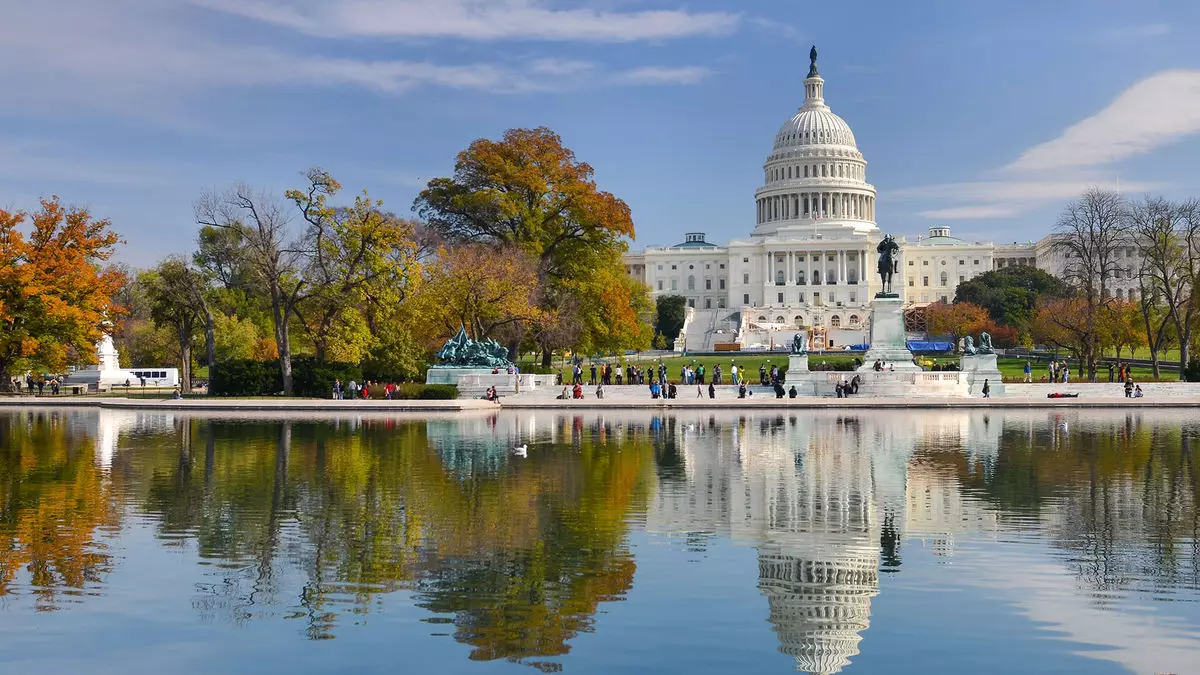The imminent return of Donald Trump to the White House as he assembles a new administration alongside evolving dynamics within Congress is expected to bring about significant changes in travel-related policies. As the travel sector anticipates a shift away from the norm, industry analysts are weighing the implications that these alterations could hold for inbound tourism, airline regulations, and broader hospitality initiatives.
According to travel analyst Gary Leff, the upcoming Trump administration is likely to diverge from established policies of the previous administration. While Trump’s first term saw a mixed cabinet, largely filled with mainstream Republicans—including Transportation Secretary Elaine Chao—this new phase is predicted to embrace a more unorthodox approach. Leff notes that the recent political environment indicates a departure from pro-business norms traditionally associated with the Republican Party, suggesting a potentially less favorable landscape for travel-related initiatives.
This anticipated shift may involve heightened scrutiny surrounding border control measures, particularly scrutinizing airport arrivals. Coupled with the Biden administration’s previous commitment to reducing visa backlogs, there exists a palpable concern that these priorities could be abandoned or deprioritized, a development detrimental to the prospects for inbound tourism. Leff warns that the uptick in “tough talk” regarding foreign policy may foster an environment that discourages international travel by leading to escalated tensions and impediments for travelers seeking entry into the United States.
Relationships between the United States and countries like China, which have faced significant strains due to trade disputes, are another area where Trump’s return to leadership could stunt recovery in travel patterns. Leff emphasizes that unresolved tensions contribute to a sluggish recuperation of flight traffic between the two nations, which remains critically below pre-pandemic figures. The recent announcement by the State Department to add a million visa appointments for 2025 is commendable but poses a risk of reversal under a new leadership—something the U.S. Travel Association has long pushed for.
Geoff Freeman, CEO of U.S. Travel, pointed to the upcoming “mega-decade” of events, including the World Cup and multiple Olympic Games, as vital opportunities to enhance travel and tourism. This momentum may be jeopardized by an administration less inclined to prioritize international collaboration or streamline visa processes.
In the airline sector, a Trump administration could signal a watershed moment for mergers and acquisitions. The Biden administration’s Justice Department has actively pursued antitrust measures against airline mergers—denying the JetBlue-Spirit merger and countering the JetBlue-American Airlines Northeast Alliance. Lucinda Guthrie, head of Mergermarket, suggests that a shift back to Trump’s more deregulated perspective may open doors for airline combinations and partnerships, a notion that raises questions about the potential for less stringent regulatory scrutiny under the new leadership.
Leff points out that a re-evaluation of partnerships, such as those between American Airlines and JetBlue, could signify a shift in opportunities for collaboration in the aviation sector. Regulatory outlook under the Trump administration may deflate the intense scrutiny contemporary airlines have faced from government investigations aimed at preserving competition and protection of consumer rights.
Significant penalties imposed during Biden’s administration have set a precedent that might meet a contrary approach under Trump. Recent high-value fines issued against major airlines for compliance failures could transform into a less aggressive stance, which, while potentially advantageous for the airline industry, could raise concerns regarding consumer protection initiatives. Ongoing investigations into antitrust practices and inquiries into loyalty programs suggest the administration’s commitment to safeguarding passengers, yet this may encounter headwinds in the context of a new political climate.
Existing proposals aimed at enhancing passenger rights—such as compensation for airline-caused disruptions and ancillary fee transparency—could face challenges once a new administration settles in. Previous executive maneuvers to dismantle regulations established by predecessors suggest that consumer advocacy efforts, particularly those linked to the current administration, could be hampered.
As the Trump administration takes shape amidst evolving control in Congress, the travel sector stands at a crossroads. The interplay of potentially deregulated approaches to airline mergers, border control, and consumer protection presents an uncertain future. Advocacy groups and industry stakeholders will likely need to remain vigilant and proactive to negotiate this landscape’s complexities, ensuring that policies not only foster economic recovery but also prioritize the rights and experiences of travelers in a new era of governance.


Leave a Reply